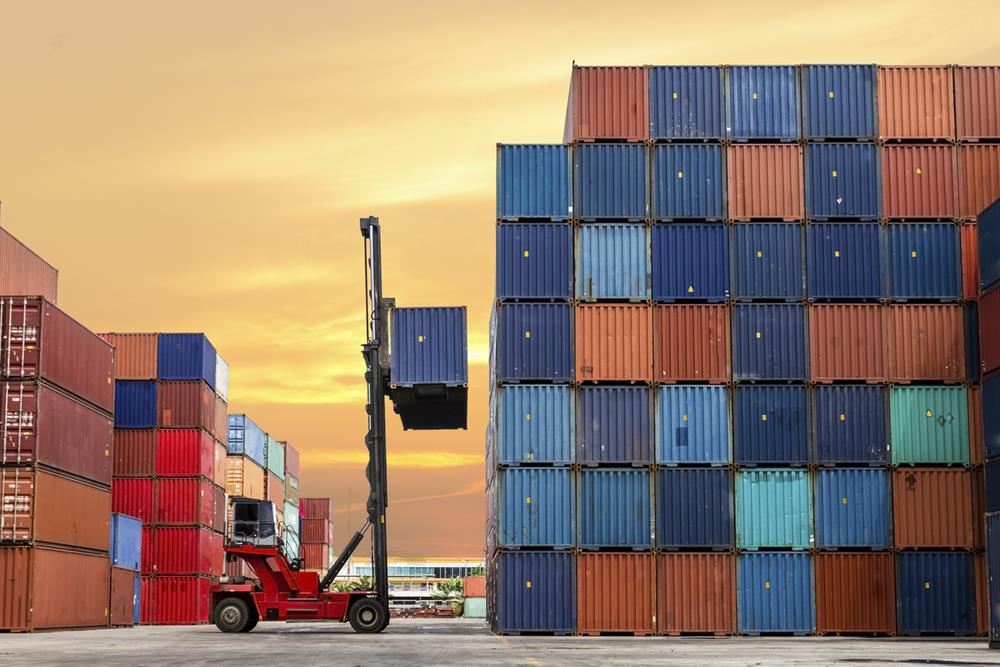Choosing the right worldwide shipping partner is crucial for any business that sends goods across borders. This decision can greatly affect how smoothly your operations run, how happy your customers are, and how well you manage the flow of your products from one place to another. In this article, we’ll explore the key features to look for in a shipping partner.
From their reliability and experience to their ability to handle shipments all over the globe, costs, customer service quality, and the security measures they offer, we’ll guide you through what matters most. Finding the right partner can help your business grow by ensuring that your products reach their destination safely, on time, and without breaking the bank.
Reliability and Experience
When sending products around the world, you need to trust that your shipping partner will deliver them on time and in good condition. Reliability and experience in a shipping partner are non-negotiable qualities that ensure your shipments reach their destinations as expected. Here’s why these factors are so important:
Understanding Reliability
- Consistent On-Time Deliveries: The ability of a shipping partner to consistently meet delivery timelines is a cornerstone of reliability. This consistency ensures that your customers are satisfied and helps maintain your business’s reputation.
- Handling of Shipping Issues: Even the best-laid plans can encounter issues. Experienced shipping partners know how to handle unexpected problems, such as delays due to weather or customs issues, minimizing the impact on your delivery times.
The Value of Experience
- Navigating Complex Regulations: An experienced shipping partner will have in-depth knowledge of international shipping regulations, customs processes, and documentation requirements. This expertise is crucial for avoiding delays and fines.
- Global Network and Relationships: Years in the shipping industry often mean a well-established global network and strong relationships with local carriers and customs officials. This can facilitate smoother shipping operations and better handling of your products.
- Adaptability to Market Changes: Shipping partners with a long history in the industry have seen and adapted to many changes, whether they’re regulatory shifts, market trends, or global challenges like pandemics. This adaptability means they’re better equipped to guide you through any situation.
A shipping partner’s reliability and experience are foundational to their ability to support your international shipping needs effectively. Choosing a partner with a proven track record and the expertise gained from years in the industry can provide peace of mind and a competitive edge in your business operations.
International Capabilities
When your business relies on shipping goods across different countries, the international capabilities of your shipping partner become crucial. These capabilities determine how well your partner can navigate the complexities of international logistics, ensuring that your products reach their global destinations efficiently and compliantly. Let’s explore what makes international capabilities so vital.
Global Reach and Network
A shipping partner with extensive international capabilities has a broad network that spans across continents. This global reach is critical for several reasons:
- Access to Major Markets: A wide-reaching network means your partner can deliver to and from key markets around the world, making it easier for you to expand your business internationally.
- Local Expertise: With connections in local markets, your shipping partner can provide valuable insights into local regulations, customs, and consumer preferences, which can be pivotal for successfully entering new markets.
Expertise in Customs and Compliance
Dealing with international shipments means navigating a maze of customs regulations and compliance requirements. A capable shipping partner offers:
- Customs Clearance Support: They can manage the entire customs clearance process, ensuring that your shipments comply with country-specific regulations and avoiding costly delays.
- Updated Knowledge of Trade Agreements: They stay informed about trade agreements and changes in international trade laws, which can benefit your shipping strategy and costs.
Technology for Tracking and Management
In today’s digital age, having advanced technology to track and manage shipments is a part of a shipping partner’s international capabilities. This technology should offer:
- Real-Time Tracking: Allows both you and your customers to monitor shipments in real-time, providing transparency and improving customer satisfaction.
- Documentation Management: Helps in efficiently managing and accessing the necessary shipping documents, reducing paperwork and streamlining the shipping process.
Handling Multiple Modes of Transportation
A shipping partner with comprehensive international capabilities will be adept at coordinating multiple modes of transportation, such as air, sea, rail, and road. This flexibility is essential for:
- Optimizing Routes: They can select the most efficient and cost-effective routes for your shipments.
- Adapting to Challenges: Whether it’s rerouting shipments due to unexpected disruptions or choosing a different mode of transportation to meet delivery deadlines, they can adapt swiftly to ensure timely delivery.
The international capabilities of your shipping partner are a linchpin in the success of your global shipping strategy. From navigating customs and regulatory landscapes to leveraging a global network and utilizing advanced technology, these capabilities ensure that your shipments are handled with expertise and efficiency, no matter their destination.
Cost
Cost is a critical factor when choosing a worldwide shipping partner. It directly impacts your business’s bottom line and your product pricing strategy. However, finding the right balance between cost-effective shipping solutions and maintaining high-quality service is essential. Let’s break down the key considerations related to cost in selecting a worldwide shipping partner.
Understanding Shipping Costs
Shipping costs can vary widely based on several factors, including:
- Distance: Longer shipping routes generally mean higher costs.
- Speed: Expedited shipping services cost more than standard shipping options.
- Weight and Volume: The size and weight of shipments significantly affect pricing.
- Type of Goods: Shipping hazardous materials or perishables often incurs additional fees.
Balancing Cost with Service Quality
While minimizing costs is important, it’s crucial to consider what you might be sacrificing in terms of service quality. A shipping partner that offers significantly lower prices but fails to deliver reliably or on time can damage your business reputation and customer relationships. Therefore, evaluate:
- Reliability: Ensure the partner has a track record of delivering shipments on time.
- Service Offerings: Assess whether their services meet your specific shipping needs.
Total Cost of Shipping
Looking beyond just the base shipping rates to understand the total cost of shipping is important. This includes:
- Customs and Duty Fees: International shipments may be subject to customs duties and taxes, which can add to the total cost.
- Additional Fees: Be aware of any additional fees, such as fuel surcharges, insurance costs, and handling fees.
- Volume Discounts: Some shipping partners offer discounts for high-volume shipping, which can significantly reduce your costs over time.
Negotiating with Shipping Partners
Don’t hesitate to negotiate with potential shipping partners. Many are willing to work with businesses to develop pricing structures that benefit both parties. When negotiating, consider:
- Contract Terms: Long-term contracts might offer better rates but ensure they have flexibility.
- Service Level Agreements (SLAs): These can outline expected delivery times, handling of shipments, and compensation for service failures, providing value beyond just the cost.
While cost is a decisive factor in choosing a worldwide shipping partner, it’s essential to consider it in conjunction with the quality of service, reliability, and the total cost involved in shipping your goods internationally. By carefully evaluating and negotiating these aspects, you can partner with a shipping company that not only fits your budget but also supports your business’s growth and reputation.
Customer Service
In the intricate world of international shipping, the quality of customer service provided by your shipping partner can make a significant difference. Effective customer service ensures that any queries, concerns, or issues you face during the shipping process are addressed promptly and efficiently, leading to smoother operations and enhanced satisfaction for both you and your customers. Here’s what to consider regarding customer service when choosing your worldwide shipping partner.
Responsive Support
- Availability: Look for a partner that offers support around the clock, considering the different time zones in which you and your customers operate.
- Communication Channels: A good shipping partner should provide multiple channels for support, such as phone, email, live chat, and possibly even dedicated account managers.
- Speed of Response: Timeliness in addressing and resolving issues is crucial, especially in time-sensitive situations.
Problem-Solving Ability
- Issue Resolution: Your shipping partner should not only be quick to respond but also capable of resolving issues effectively, minimizing any potential disruptions to your business or dissatisfaction among your customers.
- Proactive Solutions: The best partners anticipate potential problems and provide solutions before they escalate, demonstrating their commitment to your business’s success.
Transparency and Information
- Tracking Information: Providing detailed tracking information and updates about shipments empowers you and your customers with knowledge about the whereabouts and status of deliveries.
- Clear Communication: In case of delays or issues, a partner who communicates clearly and openly about the situation and expected resolutions can help manage expectations and maintain trust.
Training and Expertise
- Knowledgeable Staff: Customer service representatives should be well-trained and knowledgeable about international shipping processes, regulations, and your specific business needs.
- Consultative Approach: Look for a partner that goes beyond just answering queries and can provide advice and insights on improving your shipping strategies, saving costs, or expanding into new markets.
Customer Feedback and Improvement
- Feedback Mechanisms: A partner that actively seeks and responds to customer feedback shows a commitment to continuous improvement and customer satisfaction.
- Adaptability: Your shipping partner should be willing to adapt their processes or services based on feedback to better meet your needs.
Security and Insurance
In the complex landscape of worldwide shipping, the security of your shipments and the availability of comprehensive insurance coverage are paramount. These factors not only protect your financial investment but also ensure the trust and confidence of your customers in your ability to deliver their goods safely. Here’s what you need to know about security and insurance when selecting a worldwide shipping partner.
Importance of Security Measures
- Protection Against Loss or Damage: Effective security protocols minimize the risk of your shipments being lost, stolen, or damaged during transit. This is crucial for high-value or sensitive items.
- Technological Solutions: Look for partners that employ advanced security technologies, such as GPS tracking, tamper-evident seals, and secure containers, to safeguard your shipments.
- Expert Handling: Ensuring that your shipping partner has trained personnel who know how to handle your goods properly can significantly reduce the risk of damage.
Comprehensive Insurance Coverage
- Scope of Coverage: Insurance should cover a range of potential issues, including loss, theft, damage, and even delays in some cases. Understanding the extent of coverage is vital to ensure there are no unwelcome surprises if you need to make a claim.
- Claim Process: Check the simplicity and efficiency of the claim process. A straightforward and quick claim process indicates a customer-centric approach to resolving issues.
- Cost vs. Benefit: While opting for insurance increases the cost of shipping, the benefit of having comprehensive coverage often outweighs the expense, especially for high-value shipments.
Customized Insurance Options
- Tailored Solutions: The best shipping partners offer customizable insurance options that cater to the specific needs of your shipments and business model. This allows for flexibility and ensures that you’re not overpaying for unnecessary coverage.
- Advice and Support: A knowledgeable partner can provide valuable advice on the types of insurance coverage best suited for your products and shipping routes, helping you make informed decisions.
Ensuring Compliance and Safety
- Regulatory Compliance: Adherence to international shipping regulations and standards is a key aspect of security. A compliant shipping partner helps avoid legal issues and ensures smooth transit across borders.
- Safety Protocols: Partners with strong safety protocols for the handling and transport of goods, especially hazardous materials, are essential. This not only protects your shipments but also contributes to the safety of everyone involved in the transport process.
The security of your shipments and the assurance provided by comprehensive insurance coverage are critical considerations when choosing a worldwide shipping partner. These elements protect your business against financial losses and maintain your reputation among customers as a reliable and trustworthy seller.
Conclusion
Finding the right worldwide shipping partner is about balancing several important factors: reliability and experience, international capabilities, cost, customer service, and security and insurance. Each aspect plays a critical role in ensuring that your shipments reach their destinations safely, on time, and within budget while also providing peace of mind and satisfaction to you and your customers. By carefully evaluating potential partners against these criteria, you can select a shipping partner that not only meets your current needs but also supports your business’s growth into the future.
Additional Ideas
- With so many options available, knowing what to look for in a worldwide shipping partner can take time and effort.
- Reliability and experience are the most important factors when choosing a global shipping partner. You want to choose a partner with a proven track record of delivering products on time and without damage.
- It would be best if you also looked for a company that offers a variety of shipping options to meet your specific needs. For example, if you need to ship large or bulky items, the shipping partner should have the resources and equipment to handle those shipments.






